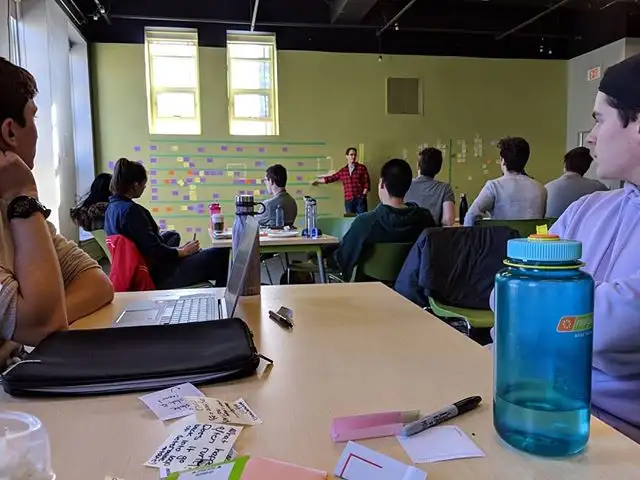Last year I was invited to help the Queen’s Hyperloop Design Team improve their chances in the SpaceX competition. They had just been informed that they did not make it into the last round of the competition, so we focused on setting up the team for success going forward.
The Queen’s Hyperloop Design Team is entirely made up of students from a variety of programs at Queen’s University in Kingston. Their success depends on financial support from their sponsors, logistics support from the faculty, theoretical and engineering insights from a mentor professor and of course their own unbridled passion, knowledge and creativity.
Our retrospective last competition showed that it was not the solution itself, not the design of the capsule, not the technology applied, but the understanding of the entire system that lead to the team’s disappointment. Focusing mainly on the capsule, the team abandoned a design based on fluid mechanics. This resulted in reduced interest of the faculty advisor, after which it became harder to get the necessary logistics support from the faculty. A limited focus on marketing did not create enough buzz to attract sponsors and new team members or even to keep existing ones engaged.
This competition I was involved earlier, so we brainstormed ways to keep the entire system healthy and create a supportive and engaging environment in which volunteer students could thrive. The team took the outcomes of the workshop to heart, gathered the necessary support in the faculty, raised more funds than before and kept the team turnover to a historic low. When I returned for a second session for this year’s competition, almost as many students as at the start offered up their Saturday to retrospect, visualize the road to success and learn about team dynamics and management techniques. Last week, the team got the liberating news that they made it into the last stage of the competition. I am proud to have the Queen’s Hyperloop Design team represent Canada in this competition, standing strong against teams from around the world with mainly graduate students and driven by massively larger budgets.
This again shows how important it is to take a step back and look at any system as a whole. While local optimization can lead to some isolated improvements, they will not necessarily improve the system. E.g. any team member operates in context of a team, every team in context of a larger organization and every organization in context of one or more industries. Taking a systems perspective will help you better understand how those systems influence one another and improve your changes for success.




